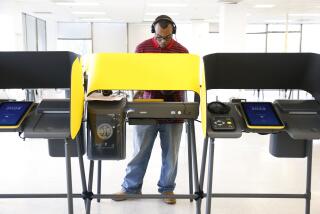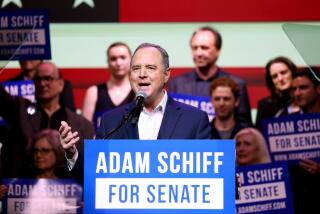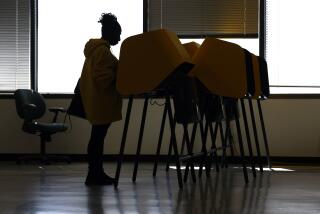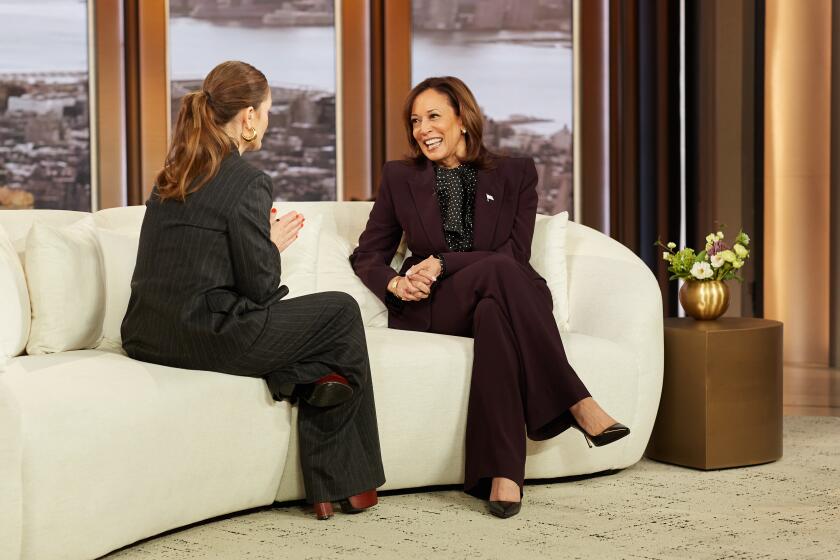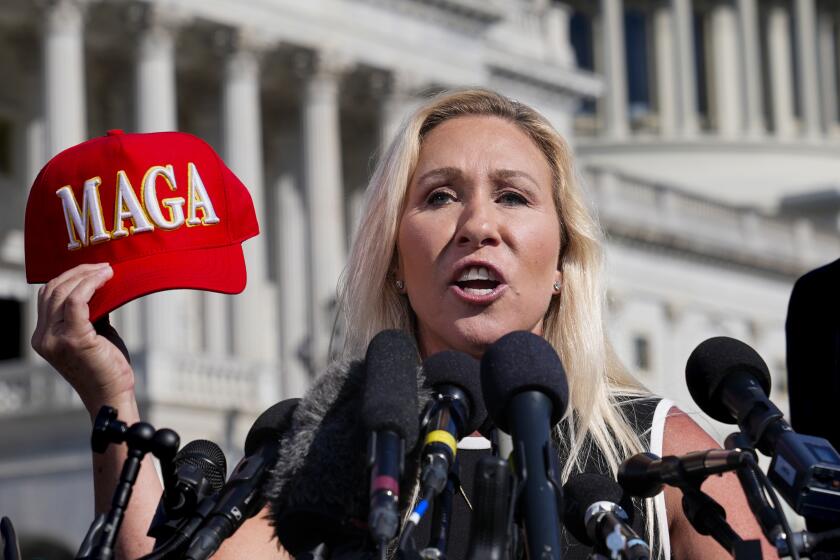Capitol Journal: Kamala Harris probably won the California primary in the first debate
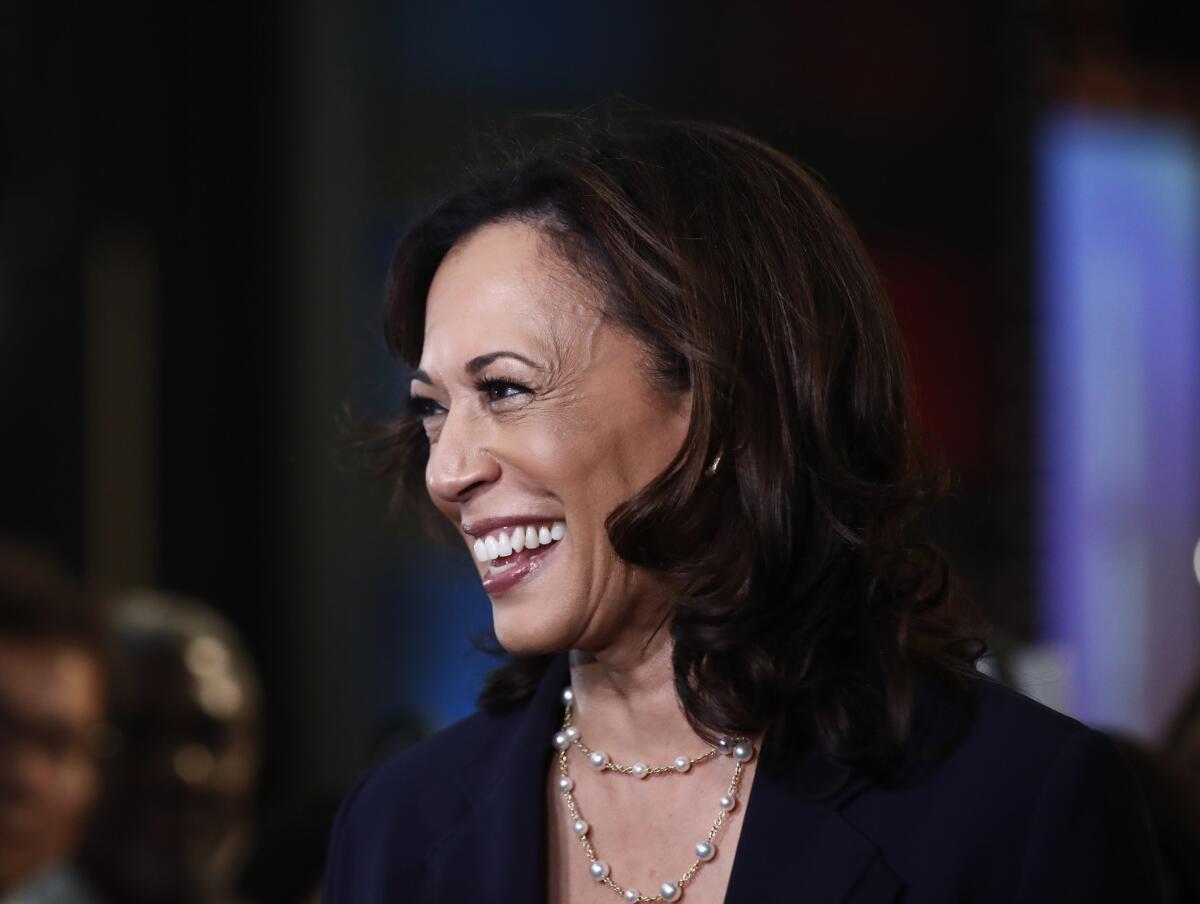
One of the biggest losers in the Democratic debates was probably the California primary. Sen. Kamala Harris’ breakthrough performance may have made it a non-contest.
That means the real losers are California’s Democratic voters. If it weren’t for Harris’ strong debate showing — clearly outshining most of her 19 rivals for the Democratic presidential nomination — many of those other candidates may have waged vigorous campaigns out here.
California voters would have been courted and crucial state issues addressed — problems such as water shortages, affordable housing, homelessness, highway repairs and damaging agriculture tariffs. State interests might have wrested some promises out of a future president.
But if California’s junior senator vaulted into major contention for the nomination last week as it seems, her rivals will probably be scared out of her home state. Why waste millions of dollars running pricey TV ads in sprawling California when you’re almost certain to be beaten by the local favorite?
California again will offer by far the largest cache of convention delegates — 495 in all. That’s roughly 24% of the total needed to win the nomination. At stake in the March 3 primary will be 416 — or 21% of those needed to be nominated.
But March 3 is Super Tuesday. There’ll be many Democratic contests in other states across the country, offering more than twice as many delegates as California — nearly half of those needed to be nominated at the July convention in Milwaukee. That means the nomination may be practically wrapped up that day.
States slated to hold contests on the same day as California include Texas, North Carolina, Virginia, Massachusetts and Minnesota.
Running in California is costly and tricky. A hefty TV buy is required, especially for out-of-staters. A candidate may be able to avoid that by targeting single congressional districts with some personal campaigning backed by significant volunteer help. But that takes time and effort away from more promising states.
Joe Biden struggles and Kamala Harris surges after clash over race and busing »
Most California delegates — 272 — will be won in individual districts. But a candidate must capture at least 15% of the vote in a district to win anything. Candidates who pick up 15% of the statewide vote will win a share of the remaining 144 pledged delegates.
There’s a history of candidates skipping California, even when it held early primaries aimed at making the state a national player. In 2008, Hillary Clinton fought Barack Obama here and won, keeping her campaign alive for a while. But she went broke in California.
It would be a tremendous coup for Harris if she could capture most of California’s delegates without spending lots of money and time here. Only three days before our contest will be the potentially pivotal South Carolina primary, in which Harris, who is black, hopes to reap votes among African Americans.
Before that, she must focus on three states the entire political world will be watching: Iowa, New Hampshire and Nevada.
Where she finishes in those four states will shape how California voters view her March 3. They won’t vote for her just out of parochial pride. They’ll want to side with a potential winner who can beat President Trump.
Before the debate, Harris’ campaign had stagnated after an impressive start when she drew 20,000 people to a kickoff in her hometown, Oakland. Then she stalled.
What Harris showed again in the debate was that she’s capable of starring on a big stage. She risked alienating Joe Biden’s supporters and coming off too negative by attacking the respected former vice president on the volatile issue of race.
“I do not believe you are a racist,” Harris told the front-runner, thereby subliminally telling viewers he might be.
Then she tore into him for his recent fond recollections of political dealings with segregationist senators early in his career, and for his opposition to busing for school integration.
Kamala Harris, known for caution, finds a risky move pays off against Joe Biden »
Biden seemed caught off guard. He accused Harris of “a mischaracterization of my position across the board.”
But Biden long has had a reputation for stepping in it during presidential campaigns. And Harris skillfully guided him into a hole that potentially could be fatal among the party’s increasingly influential young progressives.
The 76-year-old former vice president made a local control — or states’ rights — argument to defend his anti-busing position. Big mistake.
“I did not oppose busing in America,” he said. “What I opposed is busing ordered by the [U.S.] Department of Education.”
Harris proudly said that as a little girl she was bused to help integrate a Berkeley school.
“Because your City Council made that decision,” Biden shot back. “It was a local decision.”
Wrong answer. It was local governments that segregated Southern schools, relegated black people to the backs of buses and imposed Jim Crow laws for generations until the federal government stepped in and forced integration in the 1960s.
In truth, busing for integration was very unpopular in California. It wasn’t the busing of black students to their local schools that really upset white parents. It was the hourlong busing of their children away from their neighborhoods that riled them. In 1979, Californians voted overwhelmingly to ban mandatory busing.
School busing in Berkeley during Kamala Harris’ childhood was both voluntary and volatile »
It’s way too early to predict election winners. There’ll be five more debates this year, the next one July 30. There are lots more holes to step in, including for Harris.
But we can guess. And it’s a good guess that Harris won the California primary in the first debate. Voters would be better off with a spirited contest March 3.
Follow @LATimesSkelton on Twitter
More to Read
Get the L.A. Times Politics newsletter
Deeply reported insights into legislation, politics and policy from Sacramento, Washington and beyond. In your inbox three times per week.
You may occasionally receive promotional content from the Los Angeles Times.
